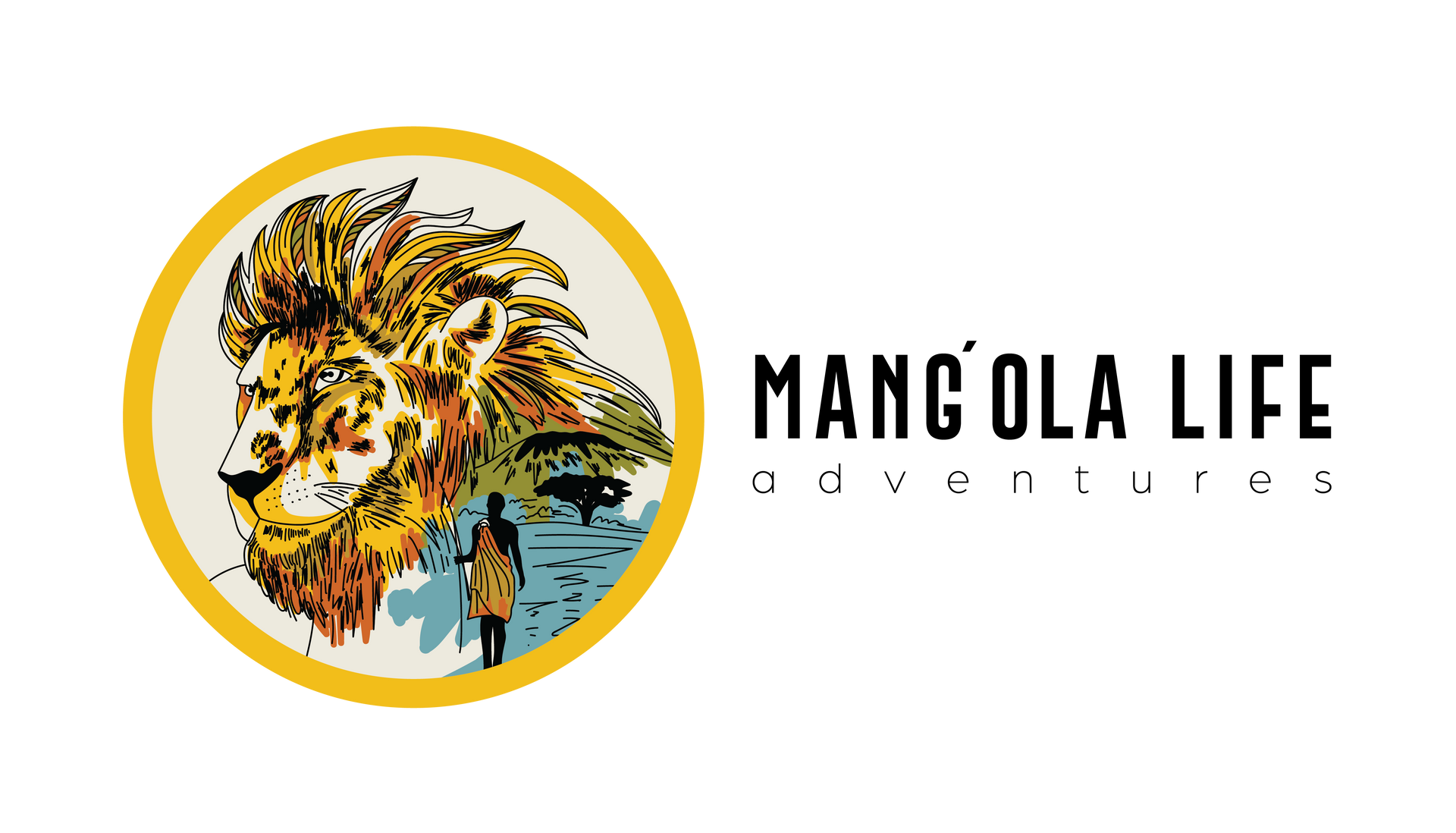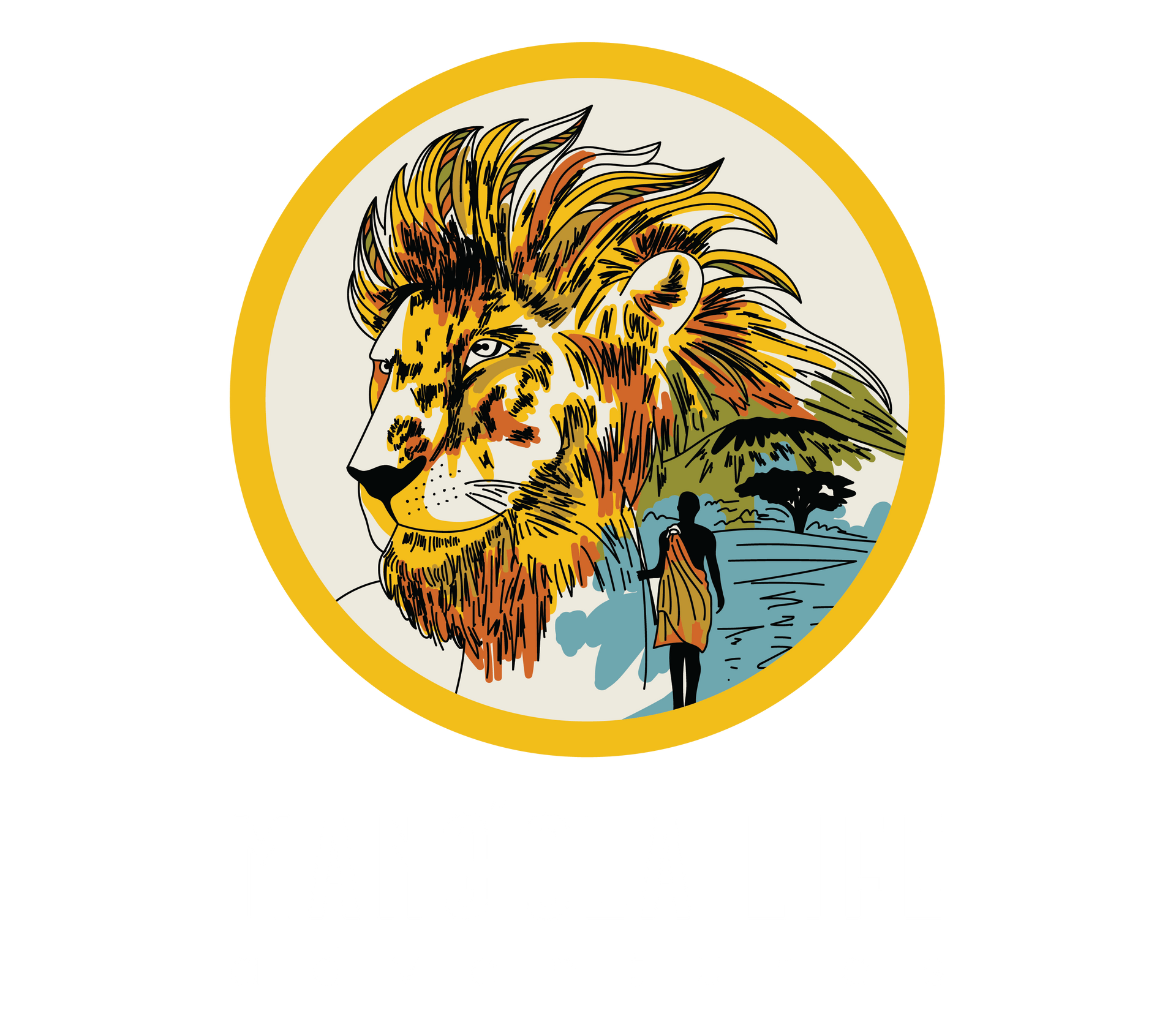Mang'ola, Tanzania: Culture, Community & Monoculture's Cost
A story rooted in more than soil
Mang’ola, Tanzania isn’t just a place on the map, it’s a question wrapped in soil, culture, and change.You’re not just planning a trip,you’re seeking connection. Because you’ve felt it before: when tourism extracts more than it gives. When stories are flattened, and culture becomes performance.
Now picture a valley in northern Tanzania, where the Iraqw, Datooga, and Hadzabe have coexisted for generations trading wisdom, raising families, and honoring the land in unique but connected ways.
But change is in the soil. Mang’ola now produces over 60% of Tanzania’s onions. This surge in industrial farming is threatening the delicate ecological and cultural balance that’s held for centuries.
What happens when land becomes commodity instead of community?
That’s what this blog explores, with nuance, care, and the hope that travel can help heal what monoculture threatens to erase.
At Mang’ola Life, we believe travel is a sacred exchange.We’re a
sustainable safari company in Tanzania, rooted in regeneration, ancestral knowledge, and experiences that honor both the land and the people.If you’re seeking a deeper kind of journey, one that listens, contributes, and transforms, you’re in the right place.
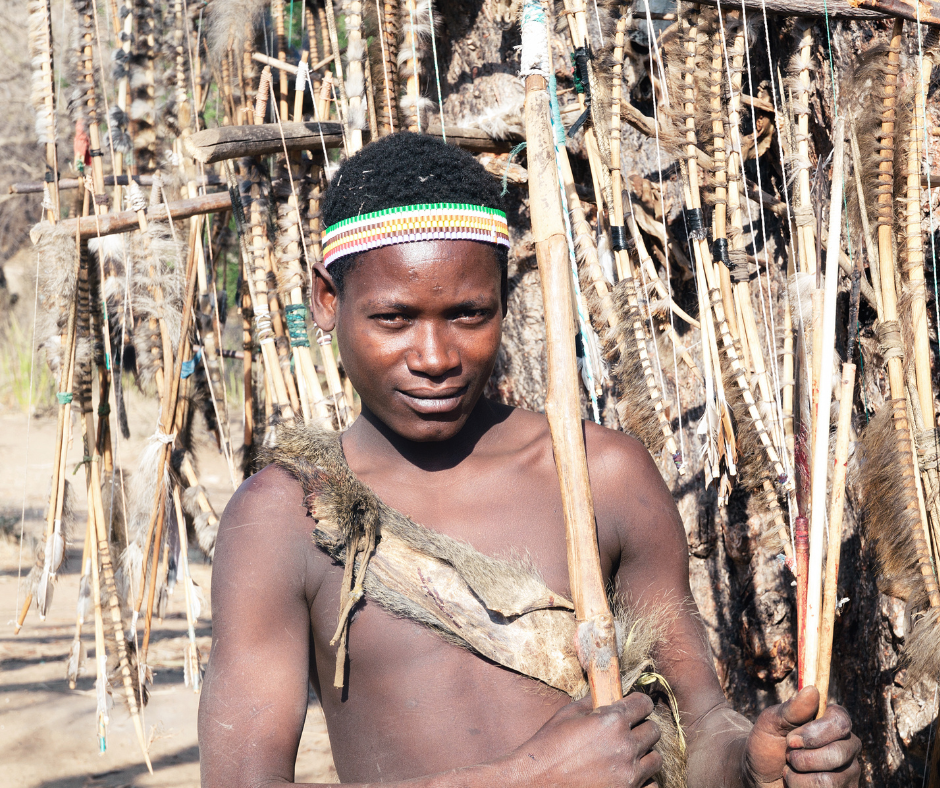
Where is Mang’ola, Tanzania, and why does it matter?
Location & landscape
Mang’ola sits quietly in the Karatu District, a stone’s throw from the legendary Ngorongoro Conservation Area.
The landscape here is layered: fertile volcanic soils, seasonal rivers that braid across the land, and ancient grazing corridors that hold memory in every hoofprint. It’s a cradle of biodiversity and cultural resilience, one that has nurtured both wildlife and human life in tandem for centuries.
Known as the onion capital of Tanzania
Mang’ola isn’t just a hidden gem, it’s an agricultural powerhouse. With over 60% of Tanzania’s onions produced here, the valley has become a magnet for commercial investors, seasonal laborers, and large-scale farming enterprises.
At first glance, this might seem like a success story: job creation, booming exports, economic opportunity.
But monoculture comes at a cost:
- Soil exhaustion from repeated planting without rest.
- Water scarcity as irrigation demands soar.
- Cultural disconnection, as traditional farming knowledge and indigenous land practices are pushed aside.
And while onions might fill trucks, they can’t fill the space left by fractured community ties or depleted ecosystems. So, what does it mean to truly understand Mang’ola? It means:
- Looking beyond the fields of green.
- Listening to the stories buried in the soil.
- Choosing to travel in a way that supports,not erodes,what makes it sacred.
The cultural tapestry of Mang’ola
In Mang’ola, culture isn’t a tourist performance, it’s a living dialogue. Each community carries wisdom etched into generations. And when you listen closely, you realize: it’s not just about who they are, but how they’ve learned to live together.
The Iraqw: Agricultural innovators with ancient knowledge
The Iraqw people, a Cushitic-speaking group, are known for their terraced farming techniques,built not for aesthetics, but for survival. Their traditional systems of water catchment and soil preservation are centuries ahead of modern sustainability models.
Their farming is community-oriented, cooperative, and rhythmically aligned with the land. To understand Iraqw farming is to understand the patience and planning it takes to truly steward land across generations.
The Datooga: Pastoral guardians of cattle and storytelling
The Datooga, Nilotic speakers and semi-nomadic herders, are protectors,not just of livestock, but of oral history. Skilled in metalwork and deeply spiritual, their bond with their animals is sacred.
Cattle aren’t just livelihood,they’re family, ritual, and rhythm. The Datooga’s stories aren't written down, but carried in chants, firelight, and memory. They speak of migration, land, drought, joy, and now, the pressure of change.
The Hadzabe: Tanzania's last nomadic foragers
The Hadzabe, among the last remaining hunter-gatherer groups in East Africa, are masters of attunement. Living in harmony with bushland ecosystems, they hunt with bows, forage with knowledge passed down through time, and leave almost no footprint. Their sustainability isn't a buzzword, it's a worldview. One that holds immense wisdom about biodiversity, seasonality, and balance, now at risk as agricultural expansion swallows ancestral lands. This deep dive into Hadza hunter-gatherer life reveals a rhythm of living that's nearly vanished.
Intercommunity collaboration
Despite linguistic and lifestyle differences, these three communities have shared resources for generations. They've traded maize for honey, stories for songs, and have respected each other's place in the land's mosaic. But monoculture doesn't understand collaboration. It demands borders. Fences. Profit margins. When land is carved for extraction, what's lost is not just ecology, but relationships. And that's harder to replant.
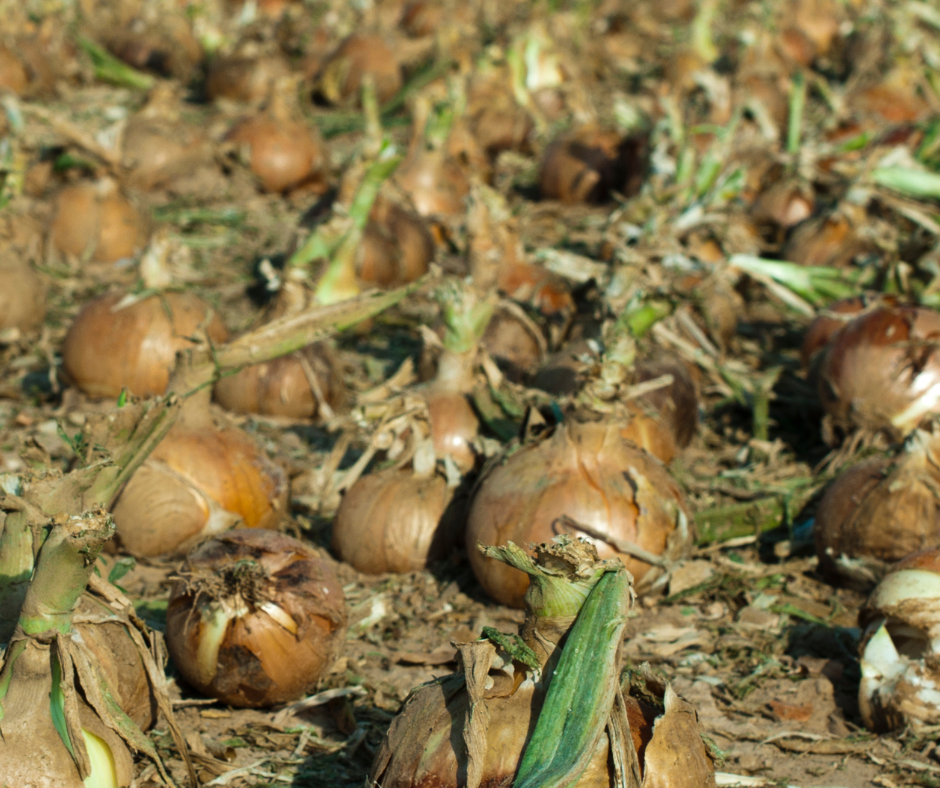
The impact of onion monoculture on land and life
What began as an opportunity has morphed into overproduction. Today, Mang'ola produces over 60% of Tanzania's onions, a statistic that reflects market demand but hides the invisible costs to people, soil, and tradition.
Environmental strain
- Onion farming requires intensive irrigation, and rivers that once nourished ecosystems now strain to fill furrows.
- Forests are cleared to expand plots, destroying habitats for native species.
- Fertilizers deplete the soil, leaving it dry, acidic, and vulnerable to erosion and flooding.
- Where once biodiversity thrived, now a single crop dominates, monoculture at its most unforgiving.
Social and economic consequences
- Land prices surge, triggering disputes between families and even communities who once shared access without conflict.
- Seasonal laborers migrate for work, often underpaid and without protection.
- Food security drops as subsistence crops are replaced with export onions.
- Younger generations, lured by urban opportunity or pushed out of ancestral roles, migrate, reshaping gender roles and family dynamics.
Cultural erosion risk
When profit becomes the land's only value, indigenous knowledge is often the first casualty.
- Communal land stewardship shifts to private ownership, severing shared responsibility.
- Farming cycles lose their ceremonial meaning.
- Children learn to measure success in yield, not in seasons, songs, or stories.
Conscious travel in Mang'ola: How to visit respectfully
Travel has the power to heal or to harm. It all depends on how we show up. In Mang'ola, where culture and ecology are deeply intertwined, conscious travel isn't optional; it's essential. If you want to experience this valley without disrupting its rhythm, here's how to begin.
Choose ethical safaris and guides.
Not all safaris are created equal. Look for those led by local communities, not just those that employ them.
- Prioritize guides who are part of the Iraqw, Datooga, or Hadzabe communities, and who tell stories from within, not from outside.
- Avoid tours that treat people like props or reduce sacred traditions to Instagram moments. Tokenism is not connection, it's extraction.
- Ask questions. Learn how your tour gives back. Ethical travel means being accountable, not just entertained.
Opportunities to learn from, not just about
Real learning happens in a relationship.
- Join storytelling evenings under the stars, where elders share histories rarely found in guidebooks.
- Walk through a farm and learn from Iraqw water stewards, or take part in a Datooga blacksmithing demonstration.
- Sit with, not above. Listen without needing to label.
As philosopher María Lugones puts it, we must travel with loving perception, not as saviors or spectators, but as guests.
Staying in sustainable accommodations
Where you sleep matters; choose places that collaborate with the land and people, not just capitalize on them.
- Seek eco-lodges built with local materials, employing local staff, and designed to have minimal environmental impact.
- Ask how your stay contributes to the community. Does the lodge support education? Agriculture? Cultural preservation?
When you stay in places that respect roots, your presence becomes part of the ecosystem, not a disruption to it. For more practical tools on making conscious travel decisions, explore these guides on sustainable tourism and community impact developed by UNESCO and other global stakeholders.
Looking for a safari that honors people and place?
At Mang'ola Life, we don't just design safaris, we create slow, intentional journeys rooted in sustainability, ancestral knowledge, and mutual respect. Whether you're walking through onion fields with a farmer, learning songs by a fire, or spotting wildlife without leaving a trace, you'll experience Tanzania differently, with humility, wonder, and heart.
Ready to explore Mang'ola consciously?
Explore our Tanzania Safari Tour and Life Expedition and become part of a story that uplifts culture, protects ecosystems, and reimagines what travel can be. Maybe we can’t change the world overnight—but we
can choose how we move through it. At Mang’ola Life, we believe tourism can plant seeds of positive impact—on land, on communities, and in the hearts of those who travel with purpose.
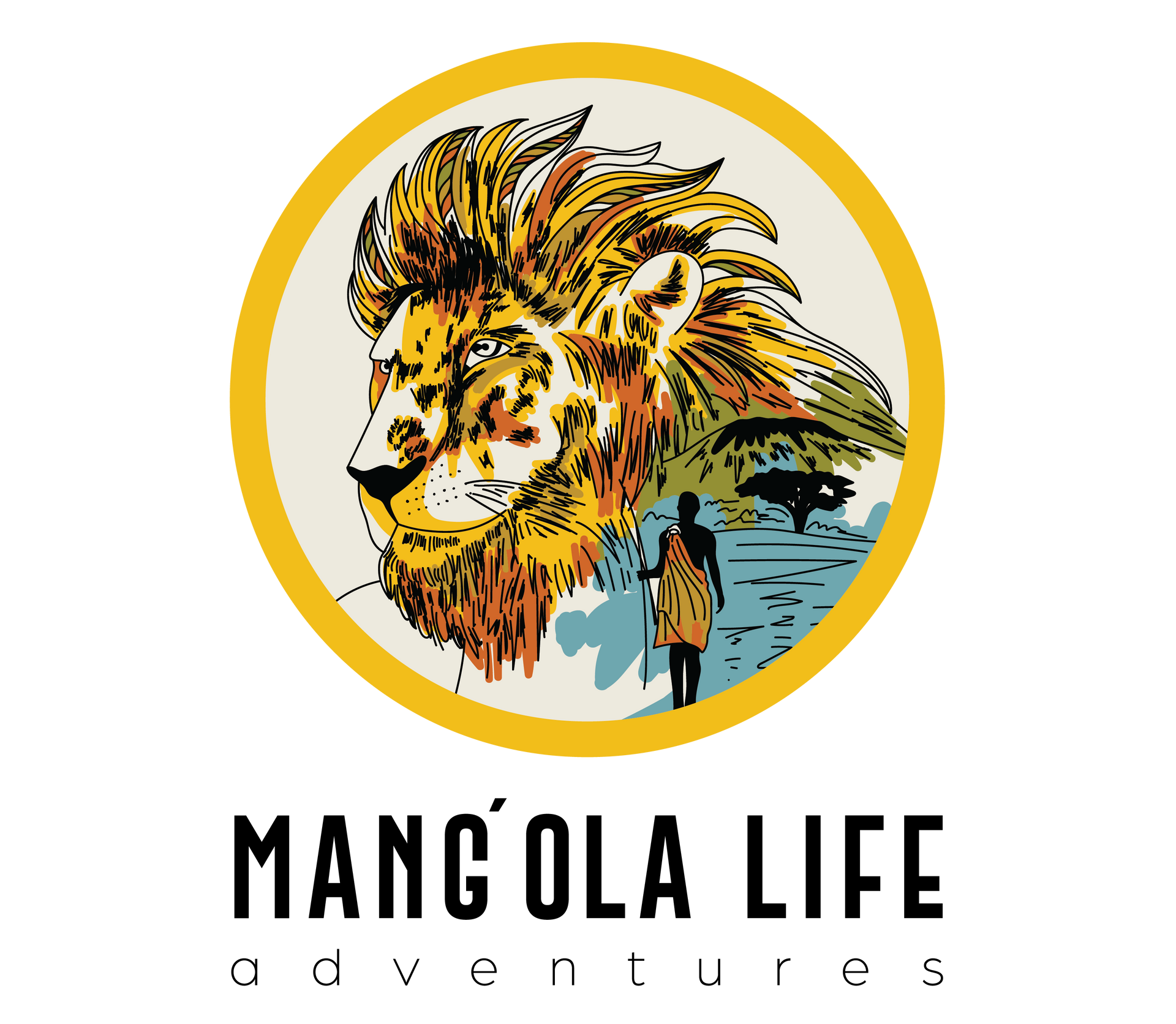
Welcome to Mang'ola life we are a sustainable safari company located in the heart of Tanzania, Africa. Plan your next adventure with us.





